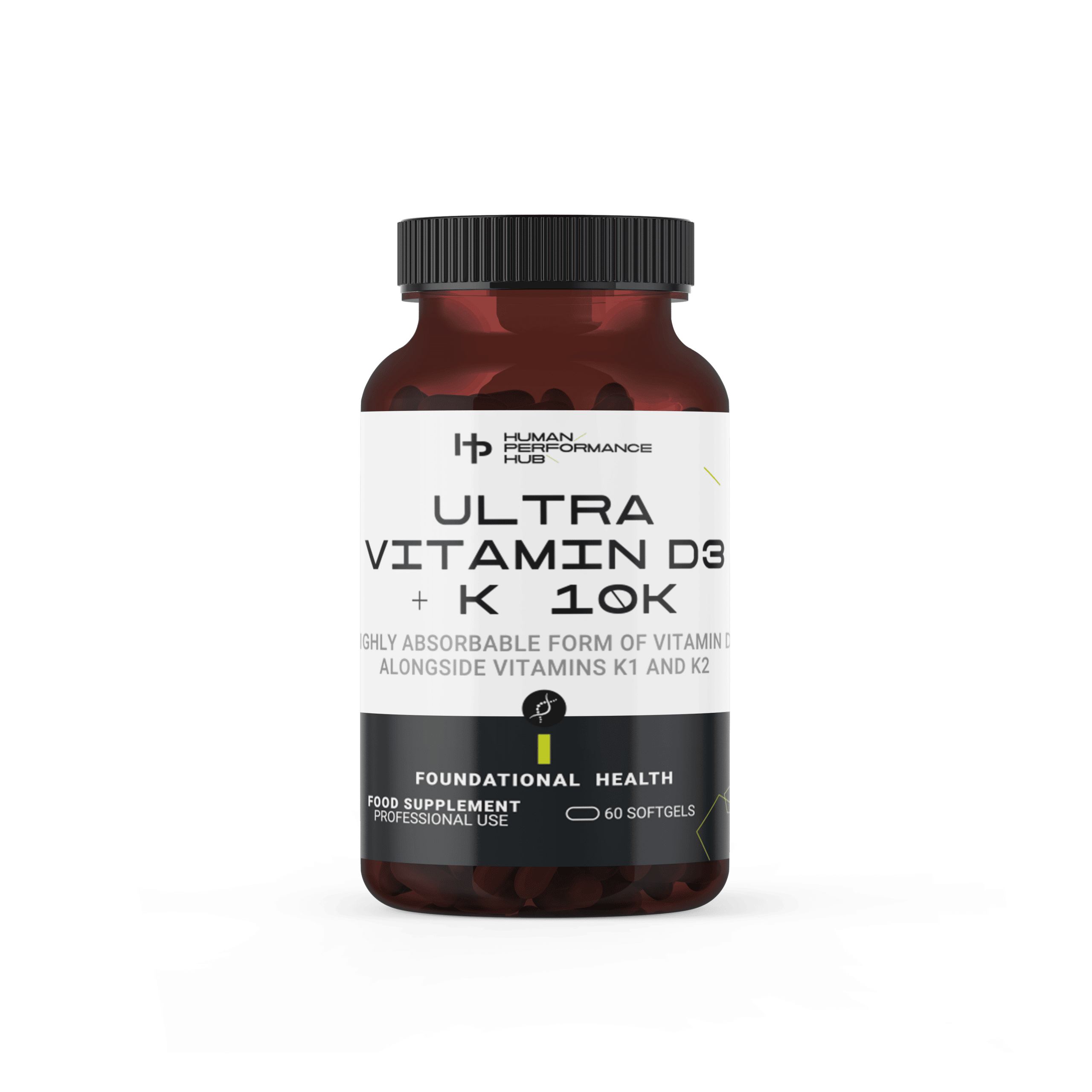Vitamin D is a fat-soluble vitamin in a family of compounds that includes vitamins D-1, D-2, and D-3. It can affect as many as 2,000 genes in your body.
We need adequate Vitamin D for robust good health. It is primarily known for regulating the absorption of calcium and phosphorous. However, it affects everything from immune function to bone health and ensures your muscles, heart, lungs, and brain function optimally.
The Consequences of low Vitamin D
Onset of disease
- Vitamin D deficiency has been linked to ‘syndrome X’, including hypertension, obesity, type 1 and type 2 diabetes, and heart disease.
- It has been implicated as a significant factor in the pathology of at least 17 varieties of Cancer.
- Vitamin D is crucial to activating immune defences; low levels inhibit the body’s ability to fight off infections.
- Low levels can also lead to poor fertility in men and women through inhibited testosterone production.
Body composition
- Low Vitamin D is associated with greater fat mass in all ages, races, and genders.
- Vitamin D plays a crucial role in calming down inflammation in the body; without adequate levels, the body is primed for fat gain and muscle loss.
- low levels increase injury risk through weaker ligaments, tendons and bones, thus lowering activity levels and compromising body composition.
Brain Health
- Neural diseases such as Parkinson’s and Alzheimers have been closely linked to low Vitamin D levels.
- Chronic fatigue, depression and seasonal affective disorder have all been linked to low Vitamin D.
- Low Vitamin D levels are associated with cognitive impairment,, as we need ample levels for optimal brain health.
Benefits of adequate Vitamin D
As well as avoiding all the undesirable side effects of low Vitamin D listed above, adequate levels have the following benefits:
Performance
- When vitamin D levels are optimal, it is a performance-enhancing substance that affects the production of testosterone and estrogen in the body.
- The action of magnesium and calcium is supported, which play critical roles in muscle activation.
- Vitamin D helps control inflammation in the muscle after trauma ( training);; therefore, it enhances recovery allowing you to train more frequently.
- It Improves oxygen absorption,, thus,, aerobic performance.
Body composition
- One of the simplest things you can do to lose fat and improve body composition is to ensure adequate Vitamin D levels.
- Sufficient vitamin D has been shown to increase insulin sensitivity and decrease insulin resistance. Both significantly improve body composition.
How do we get Vitamin D?
Your body produces vitamin D naturally when it’s directly exposed to sunlight. Besides getting vitamin D through sunlight, you can also get it through certain foods and supplements to ensure adequate levels of the vitamin in your blood.
Food
Food provides minimal vitamin D, with the highest levels found in beef liver, egg yolks and fatty fish. These sources alone are not sufficient to maintain adequate levels.
Sunlight
Your body can synthesize vitamin D when your skin is exposed to sunlight, specifically UVB rays. The sunlight needs to be a sufficient intensity which usually is between 10 am-2 pm from April to September in the Northern hemisphere. By sunbathing between these times with plenty of skin exposure, your body can synthesize 10,000 and 25,000 IUs every 15 minutes.
However, the reality of modern living is that we spend most of our time indoors wearing full-length trousers and shirts and thus rarely get adequate sun exposure. Wearing sunglasses and sunscreen severely impedes the body’s ability to produce Vitamin D.
This is partly why there is now an epidemic of low vitamin D levels, especially in Europe, with estimates ranging from 40-90% of the population.
As a side note, we have seen these results with our members; in late 2015, we ran blood tests, and 14 of the 15 tested had low Vitamin D levels despite testing in September at the end of summer.
Supplementation
Before supplementing with vitamin D, we recommend having your levels tested. Vitamin D is fat-soluble, so it is possible to have too much. Your body can regulate its levels when produced naturally through sun exposure; however, it cannot do this with supplementation.
Testing your Vitamin D levels is now a simple, affordable process you can do at home. See Vitamin D Test.
The levels you should strive for are between 80-120 nmol/l. Depending on your levels, you can supplement accordingly.
Here at Human Performance Hub, we align with the Vitamin D council recommendations of 4 – 5,000 IUs daily for maintenance and 10,000 IUs daily to increase levels. You should then re-test every 3-6 months.
It would be best if you supplemented with Vitamin D3, not D2, as this is the form that the body readily uses. It also helps to have Vitamin K1 and K2 in with the D3, which helps get calcium into your bones.
Summary
- Having adequate vitamin D is essential for robust good health
- Get your levels tested
- If necessary, supplement and re-test every 3-6 months
Please contact us today using the form below if you’d like to learn more about this topic or any other health and fitness-related issues.
If you are looking to buy high-quality vitamin D supplements, we provide the following:
Highly bioavailable liquid vitamin D formulation offering 2000 IU per 1 mL (one full dropper) along with 250 mcg of vitamin K1 and 25 mcg of vitamin K2
Vitamin D 3 – 10,000 IU, Vitamin K1 & K2 – 2,000 Mcg per softgel.
Consultations
We’re always here to help. If you have any questions or want advice on nutrition, supplements or training, please book a consultation.
Further reading
Always speak with your physician or another healthcare professional before taking any nutritional & lifestyle changes or before taking any nutritional supplement. For more information, please view our terms and conditions.












